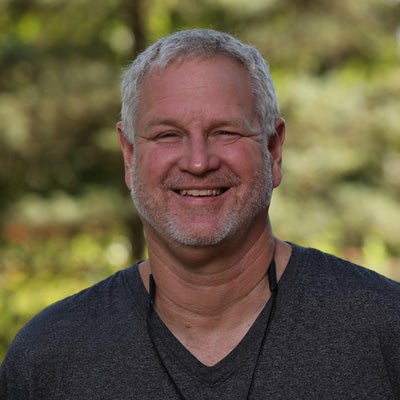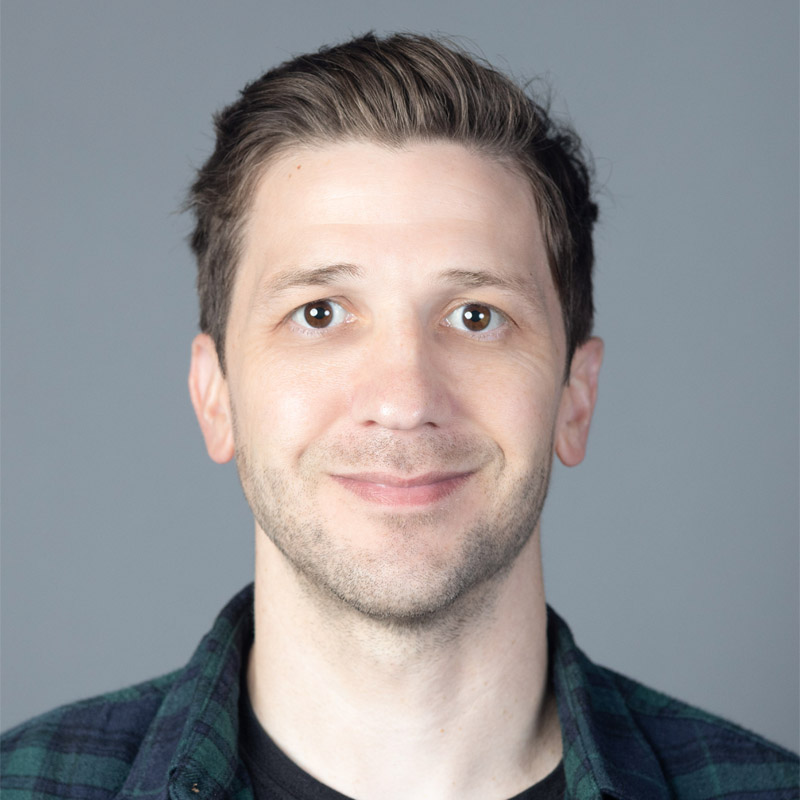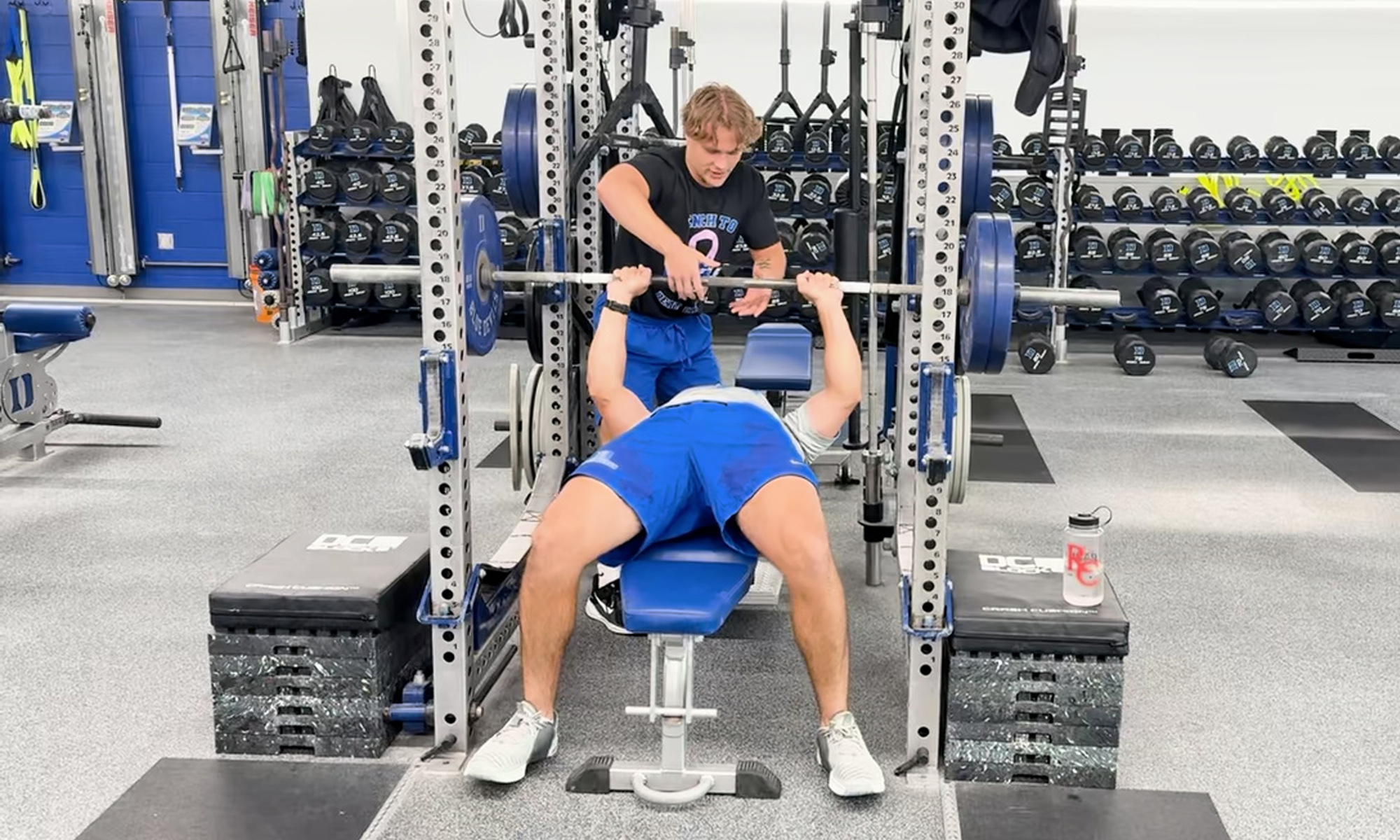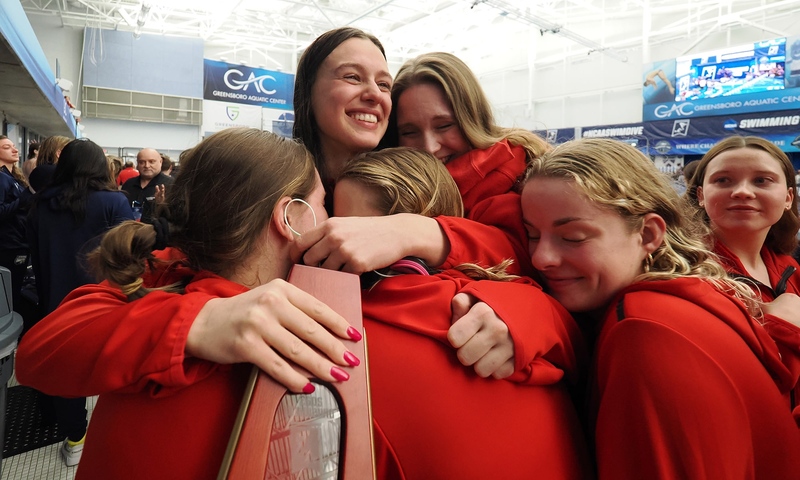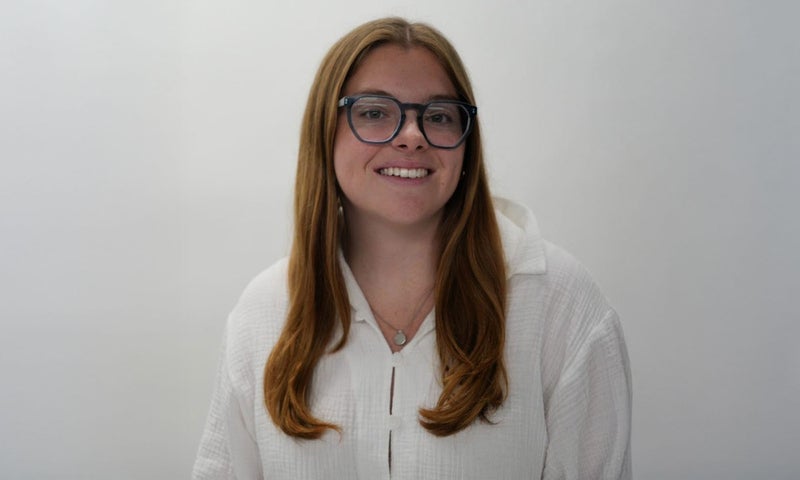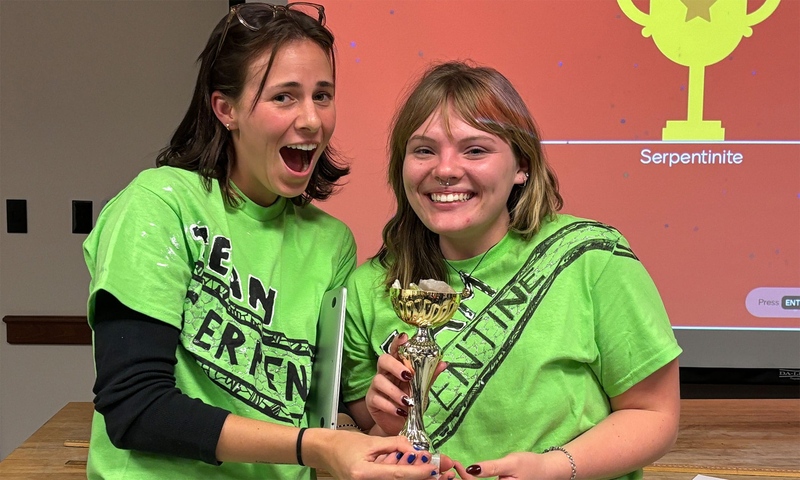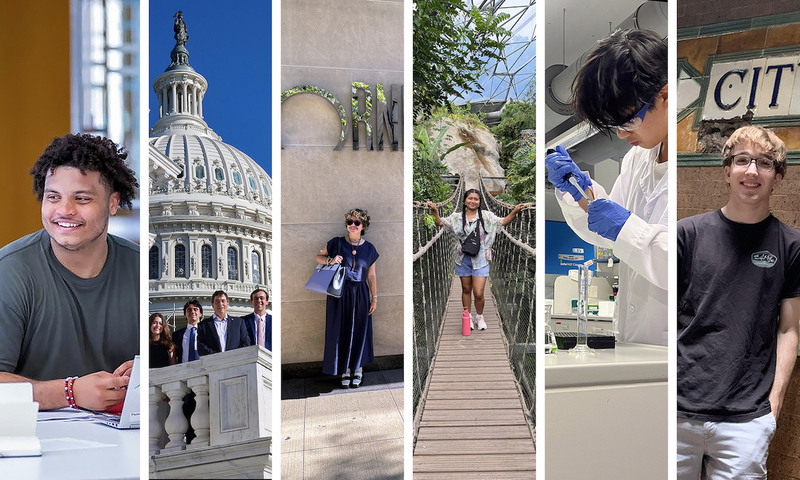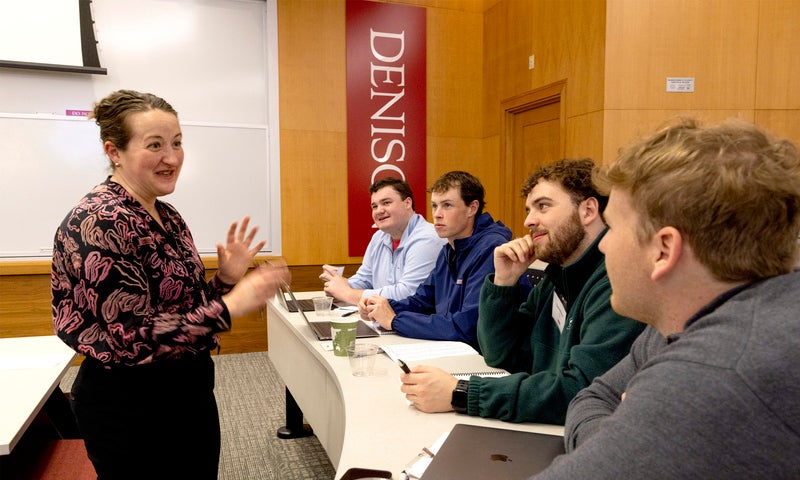While discussing his second high-profile internship in as many summers, Jackson Moore ’26 recalls his Harry Potter moment.
Moore trains Duke University athletes as a sports performance intern and has access to some of the best sports science technology in the country. But it isn’t where his Harry Potter moment occurred.
A year ago, Moore worked a similar job at Clemson University, where he became one of the youngest summer interns in the Tigers’ sports performance program. That’s not where the magic happened, either.
Moore was a high school senior in Asheville, North Carolina, when college advisors recommended Denison University. A sports fanatic and a workout warrior, he marveled at the opportunities afforded him through the health, exercise, and sports studies (HESS) curriculum and the Big Red’s innovative sports performance program.
“It was like Hogwarts,” Moore says, referencing the fictional boarding school of magic for young wizards. “In my mind, there was no other choice but Denison.”
Between his liberal arts education and the mentorship of Beau Scott, director of sports performance and head coach of strength and conditioning, Moore is thriving. He is a bundle of fast-twitch muscles and positive energy.
The former football player has worked the past two school years under Scott in Denison’s strength and conditioning room, helping train Big Red athletes who made the 2024-25 academic year arguably the greatest in school history. Moore’s experience and appetite for learning led to Division I summer intern offers.
Since 2018, Scott has seen his student workers secure internships, graduate assistant roles, and full-time positions in 16 major-college athletic departments. They usually serve their first summer internship after their junior year, but Moore’s ambition and dedication to coaching helped him land the Clemson apprenticeship following his sophomore year.
“Jackson has shown a lot of initiative over the past couple of years,” Scott says. “That just puts him in a great position to get a graduate assistant position and make connections.”
Moore is working a 13-week internship at Duke in Durham, North Carolina. He’s training athletes for a variety of sports, but his primary focuses are men’s lacrosse, women’s volleyball and women’s soccer.
He leads warm-up exercises, coaches athletes during workouts, and assists in facility maintenance. Moore is getting the chance to interview all of Duke’s eight sports performance coaches and earn a strength-and-conditioning specialist certificate, which usually costs about $500. He’s also encouraged to familiarize himself with high-tech sports science devices found in the Duke gyms.
“My parents tell me the world is my oyster, and that I need to shoot big,” Moore says. “That’s what I’m trying to do here and at Denison.”
He was part of the Big Red football team before his second knee injury — Moore suffered his first in high school — made him assess his priorities. Training athletes is his passion, and it’s hard to demonstrate proper form, tenacity, and technique if you’re hobbling around the gym.
Moore lauds the all-encompassing nature of the HESS program. Because it tackles health and sports study from so many angles, the major became a huge selling point in his college choice. His decision to minor in Spanish enables him to teach, motivate, challenge, and cajole athletes in two languages. He believes that could be beneficial if applying for work in soccer and baseball, two sports populated with Spanish-speaking players.
No matter the language, it’s not easy for student assistants in a highly-charged weight-room setting to coach and correct campus peers. Moore welcomes the chance to train athletes at other universities because he has no previous association with them. It’s a common refrain among student workers in college athletic programs.
“You can’t be buddy-buddy around athletes — and that’s not easy when you’re a people pleaser,” Moore said. “I’ve learned so much from Beau, who knows what it takes to mold winners and how to hold everyone to the same standard.”
Surrounded by so much sports technology and data science, his Duke internship has reminded him of the fork in the road that awaits in graduate school. Does he remain on the sports performance track or branch out to sports science?
Moore feels fortunate to be learning and apprenticing in one of the nation’s most progressive Division III athletic programs. HESS and data analytics are teaming up to provide coaches with reports that can help with load management and reduce soft-tissue and muscle injuries. His senior research project will focus on GPS monitoring devices worn by athletes that track their movements in practices and games.
Not all of Scott’s summer interns wind up in sports. Valesha Province ’19 is a clinical research coordinator at the Cleveland Clinic.
No matter what path he chooses, Moore has a bright future in the profession.
“Jackson is a hard worker and a leader,” Scott said. “He’s going to have a lot of success when he gets into the field full time.”
